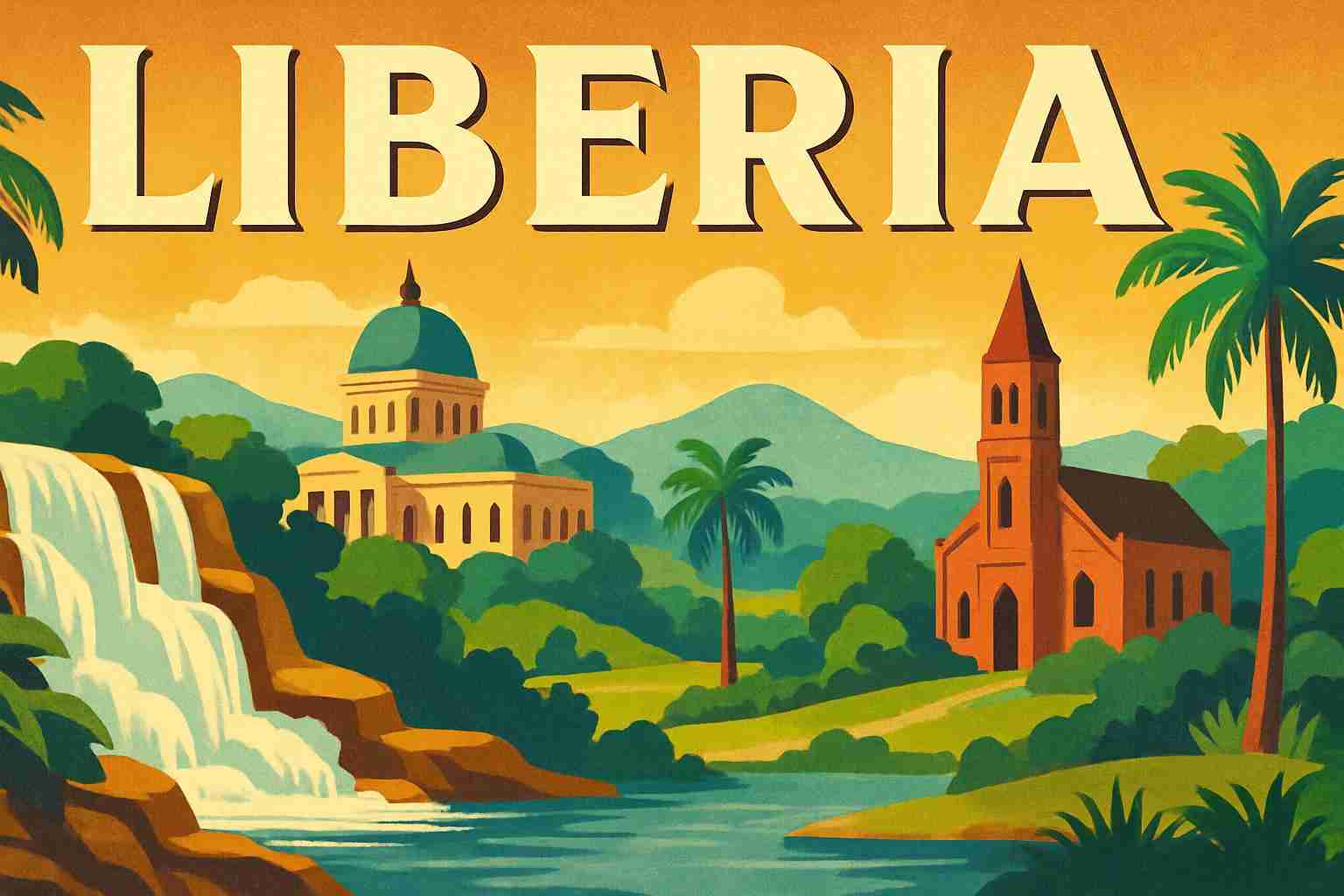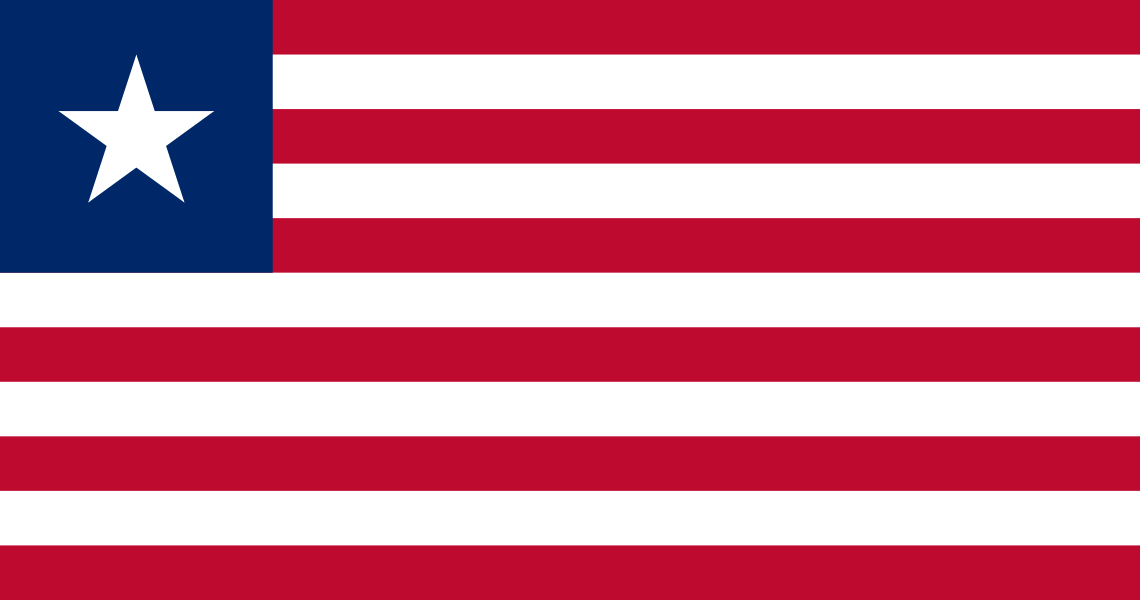Currency in Liberia: LRD Send & Spend FX Guide
 Resources for Expats, Travelers and Entrepreneurs Navigating Life and Trade in Liberia with the Liberian dollar.
Resources for Expats, Travelers and Entrepreneurs Navigating Life and Trade in Liberia with the Liberian dollar.

What's in this Liberia currency guide?
What currency is used in Liberia?
The official currency of Liberia (country code: LR) is the Liberian dollar, with symbol L$ and currency code LRD.
What is a good Liberian dollar exchange rate?
The BestExchangeRates.com currency comparison table below helps you see the total cost of your currency transaction by showing the exchange rates offered by different providers. It also makes it easy to spot potential savings from market-leading FX services compared to bank rates.
To see a full list of rates, enter your transaction type, currencies and amount then click ‘GET RATES’:
Loading rates...
|
|
|
Good things to know about the Liberian dollar
The Liberian Dollar (LRD) is the official currency of Liberia, a country located in West Africa. It is abbreviated as LRD and is made up of 100 cents. The Central Bank of Liberia is responsible for issuing the currency and managing the country's monetary policy.
The Liberian Dollar is not pegged to any other currency, and its value is determined by market forces.
For more LRD information check out our selection of Liberian dollar news and guides.
Frequently Asked Questions
What currency should I use in Liberia?
The domestic currency in Liberia is the Liberian dollar.
What is the Liberian dollar currency code and symbol?
The three letter currency code for the Liberian dollar is LRD — symbol is L$.
What does the Liberian dollar look like?
Here is an example Liberian dollar banknote:

Which countries use the Liberian dollar?
It is the domestic currency in Liberia.
Is the Liberian dollar a closed currency?
No, the Liberian dollar is freely available and convertible. See guide: What is a closed currency?
What are equivalent amounts of NZD and LRD?
Here are some popular conversion amounts for NZD to LRD (New Zealand dollar to Liberian dollar)*.
| NZD | LRD |
|---|---|
| NZ$ 1,000 | L$ 109,850 |
| NZ$ 5,000 | L$ 549,250 |
| NZ$ 20,000 | L$ 2,197,000 |
| NZ$ 100,000 | L$ 10,985,000 |
| NZD | LRD |
|---|---|
| NZ$ 9.1030 | L$ 1,000 |
| NZ$ 45.52 | L$ 5,000 |
| NZ$ 182.06 | L$ 20,000 |
| NZ$ 910.30 | L$ 100,000 |
More amounts
*Converted at the current NZDLRD interbank exchange rate. Calculate actual payout amounts for Send Money and Travel Money exchange rates.

Travel money for Liberia
Using Wise for Liberian dollar travel money is a smart choice for savvy travelers. With its competitive exchange rates and low fees, Wise allows you to convert and manage multiple currencies effortlessly.
Be careful when using your own bank's Debit/Credit Card, as your bank may also charge an extra 3% as an “Overseas Transaction Charge” plus “Overseas ATM” fees for withdrawing cash on top of the standard Visa/Mastercard 2.5% from market mid-rate.
For card purchases, if you are offered a choice of currencies always select to Pay in Liberian dollar otherwise you will typically get much worst dynamic currency conversion (DCC) exchange rates.
If you really want Liberian dollar cash before departure, you can save money by ordering online. You generally get better rates and can pick up the LRD cash locally or even on travel day at the airport.
Liberia: Travel Guide
Traveling to Liberia requires careful financial planning to ensure a smooth and cost-effective experience. Here's a comprehensive guide to help you navigate currency considerations and manage your money effectively during your visit.

It's home to one of West Africa's best national parks, and still hangs on to a confident American spirit mixed with West African roots. And despite the ravages of the past, it is a fantastic place to travel, full of hope and energy. Liberia was founded by freed black slaves during the pre-Civil War antebellum era of the nineteenth century. The capital, Monrovia, was named after James Monroe. Liberia's flag closely resembles the American flag, reflecting the historical ties of Liberia to the United States.
After a decade of dusting themselves off and resuming normal life following their brutal civil war, Liberians experienced another deadly conflict in 2014 – the Ebola virus. While the nation is officially Ebola-free per the WHO, it's struggling economically to recover. With travel restrictions lifted, tourism can play a huge role in this.
English is the official language in Liberia, although dozens of tribal tongues are used, as well. If you’re traveling to remote areas, a local English-speaking guide will prove useful.
What currency should I use in Liberia?
Liberian dollars are the official currency, but US dollars are the usual means of payment for visitors and are accepted everywhere. Visitor should bring enough cash to cover their stay, as ATMs and credit cards are almost unheard of. Rumor has it that a few ATMs are being installed in Monrovia in the near future, but better to be safe than sorry. Other currencies can be exchanged at Monrovia’s Liberian Bank for Development and Investment on Randall Street, which also holds a Western Union office able to process urgent cash transfers overseas within 24 hours.
If someone gives you Liberian Dollars in change, accept it because it will be useful to have some on hand for very small purchases, but once you have a little, be sure to get dollars back (except when your change is less than a dollar, they use local currency in lieu of coins).
Best way to travel in Liberia?
Something to remember is that there are no internal flights within Liberia, nor is there train a service. There are no long distance buses for tourists. The government just received a few buses for public travel and they are usable for travel under the National Transit Authority (NTA) guidance with their main terminal in the Gardnerville suburb. Bush taxis go daily from Monrovia to most destinations, including Buchanan, Gbarnga, Ganta, Sanniquellie and the Sierra Leone border, although distant routes are severely restricted during the rainy season. Minivans (called 'buses') also ply most major routes, although they're more crowded and dangerous than bush taxis.
There is no passenger ferry service within Liberia, but you will find many unofficial canoes and boats providing transport on various waterways in the country.
The police can actually be a bit of a problem. While they're nowhere near as corrupt as they used to be, some members of the police force still stop foreign travellers and not release them until some form of bribe has been delivered, so watch out for that. Make sure you have a copy of your passport on you at all times, so if local authorities do decide to question you, you have readily available proof of identity and nationality.

Everyday Costs in in Liberia
How much does it really cost to live, work, or travel in Liberia? Here's what to expect for daily expenses and expat living.
Currency Guide for Liberia (ISO Code: LR)
When planning a week-long mid-range stay in Liberia, travelers should budget approximately $700 to $1,000 USD, depending on personal preferences and activities. The local currency, the Liberian dollar (LRD), is essential for daily transactions. Here's a quick breakdown of typical daily expenses you might encounter while exploring this vibrant West African nation:
- 🍽️ Meal at a local restaurant: 300 – 600 LRD
- ☕ Coffee: 100 – 200 LRD
- 🚍 Public transport fare: 50 – 150 LRD
- 📱 Prepaid SIM card: 1,000 – 2,500 LRD
- 🏨 Budget hotel or Airbnb: 4,500 – 10,000 LRD
Overall, Liberia is considered to be an average destination in terms of cost. Compared to the United States, where a mid-range meal might set you back around $20, meals in Liberia are significantly lower. Meanwhile, compared to Australia, where a budget hotel could average $100 USD per night, travelers will find Liberia's accommodation options to be more budget-friendly.
Section for Expats
For expatriates settling in Liberia, the typical monthly living costs can range from 60,000 to 120,000 LRD, depending on lifestyle choices and accommodation preferences. Essential expenses include housing, groceries, and transportation, which will need to be factored into the budget. It’s essential to set up a local bank account and consider using debit/credit cards, as many establishments now accept international cards. However, be cautious of potential foreign transaction fees.
When it comes to currency exchange, expats often find it advantageous to use online transfer services like Wise or OFX for sending and receiving money, as these services typically offer better exchange rates and lower fees than traditional banks. While local exchanges can be convenient, using these online platforms often provides greater savings and a more favorable exchange comparison when managing expenses in Liberia.
USD/LRD Market Data
The below interactive chart displays the USD/LRD change and UP📈 DOWN📉 trends over the past 1 Year.
Send Money to Liberia - Best Rates
To get a good (and fair) exchange rate when sending money to Liberia you need to find and compare exchange rates for International Money Transfers (IMTs).
The available FX rates for sending money abroad can be very different to the mid-market (wholesale) rate which you see reported online and in the News.
You should especially compare your own bank's exchange rates to those available from Money Transfer specialists to see how much you can save - we make that calculation easy in the below table.
Get a better deal for foreign transfers to Liberia
When sending money to Liberia it’s important to compare your bank’s rates & fees with those we have negotiated with our partner money transfer providers. To get a better deal you should follow these 4 simple steps :
- Open an account with a BER reviewed FX provider (id docs may be required)
- You specify the local or Liberian dollar amount you want to transfer
- Make a local currency domestic transfer for the requested amount to the provider's bank account in your country
- Once your funds are received by the provider the converted LRD amount will be transfered to the recipient account you specify in Liberia.
Use the above calculator to compare the exchange rates of FX specialist providers rates versus your bank's standard rates you can hopefully save around 5% and maybe more - end result is more Liberian dollar deposited into the recipient bank account and less margins and fees kept by the banks!
